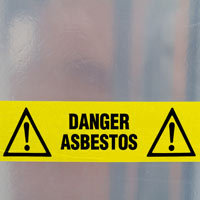 Six organizations have filed a petition with the United States Environmental Protection Agency (EPA) to change the way asbestos content is reported, and to strengthen public asbestos hazards awareness.
Six organizations have filed a petition with the United States Environmental Protection Agency (EPA) to change the way asbestos content is reported, and to strengthen public asbestos hazards awareness.
The nongovernmental organizations (NGOs) have also pushed for a federal ban on asbestos, which does not now exist in the U.S.
The six U.S. organizations filing the petition to EPA are:
In their petition to force better regulation of this substance, they claim that the federal asbestos rule as currently written is “limited, vague and incomplete.”
Currently, asbestos is categorized as exempt under the federal rule from reporting under the chemical data rule (CDR), unlike other regulated carcinogenic substances. In 2018 the Trump Administration’s EPA made other changes to how asbestos is assessed, which have the effect of potentially opening new avenues for asbestos use in the United States, despite its known carcinogenic effects on humans.
Asbestos under the present rule is treated as a “naturally occurring” substance – due to its mineral derivation – which has a different reporting threshold than other toxic substances. The petition requests that the EPA revise its Toxic Substances Control Act (TSCA) requirements for asbestos, and state that the current system in place does not include information on how asbestos is used.
At present, information on asbestos use in products in the United States is limited under this rule, stating that the information is confidential and proprietary business information. Among the companies that use asbestos, reporting is voluntary but not required – leading to insufficient public awareness, the organizations argue.
With the established scientific documentation of the link between asbestos exposure and diseases such as the cancer mesothelioma, these NGOs are pushing for stronger reporting and disclosure to the public.
Asbestos is used in manufacturing industries because of its insulating and heat resistant properties. It is classified in the United States as a known carcinogen by the EPA and other agencies. Asbestos was used heavily in the past in industries including construction, automotive, insulation, and shipbuilding.
While workers employed in industries using or manufacturing items with asbestos are most at risk for disease from asbestos exposure, its use in the home can also be a hazard to human health. In the home, asbestos can be found in older ceiling tiles, pipe insulation, and paint products.
Asbestos exposure can lead to respiratory illness and disease, including mesothelioma, which is a cancer that is particularly difficult to treat, and which is incurable.
The six agencies petitioning the EPA for further regulation of asbestos all work on public health issues and toxins, and submitted the petition to force better disclosure and risk assessment to the public. The EPA must undertake renewed assessments of the risks of asbestos and various other specific toxins by the end of 2019.
The NGOs petition was filed in September 2018, and by law the EPA has 90 days to submit a response. For those concerned about possible exposure to asbestos products in the workplace or home, an experienced Philadelphia asbestos lawyer can assist.
Whether you or a loved one believe your mesothelioma was the result of home or on the job asbestos exposure, contact the Philadelphia asbestos lawyers at Brookman, Rosenberg, Brown & Sandler for a free consultation to discuss your case. Please complete our online consultation request form or call us at 215-569-4000. We serve clients in Philadelphia and Delaware County, Chester County, Philadelphia County, Pennsylvania, and New Jersey.